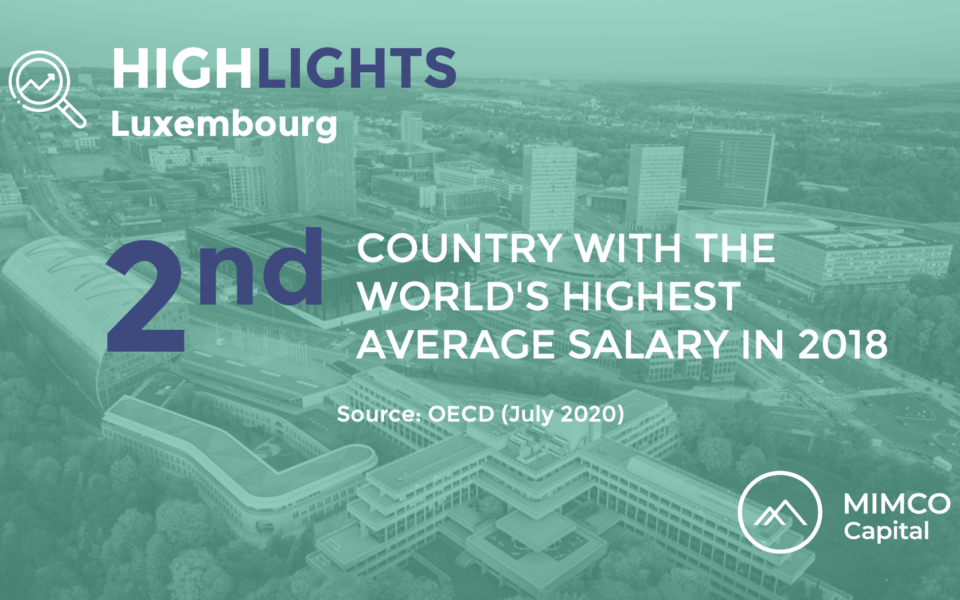Ocity II
Invest in Luxembourg real estate with OCITY II
Fonds ouvert à la souscription
Please fill in this mandatory field.
Please fill in this mandatory field.
Veuillez renseigner un numéro de téléphone valide.
Please fill in this mandatory field.
Veuillez renseigner une adresse email valide.
Please fill in this mandatory field.
Please fill in this mandatory field.
Please fill in this mandatory field.
Please fill in this mandatory field.
Please fill in this mandatory field.
À toutes fins utiles, il vous est rappelé que MIMCO Asset Management est une filiale du groupe MIMCO Capital et qu’elles sont deux entités différentes. La société MIMCO Capital est une société de droit luxembourgeois non régulée qui propose les solutions d’investissement Mercureim EF1, Everest One, BUILDIM 19 et OCITY. Ses fonds sont réservés exclusivement aux investisseurs professionnels au sens de la directive 2014/65/UE - MiFID II. MIMCO Asset Management est née du développement de MIMCO Capital vers la France. MIMCO Asset Management est une société de gestion de droit français régulée par l’AMF sous l’agrément n° GP-21000018, qui gère les fonds MIMCO Grand-Ducal, MIMCO Revitalize et MIMCO Green Value. Par renvoi de l'article L. 214-144 du CMF, ses fonds en cours et à venir sont exclusivement réservés aux investisseurs professionnels et assimilés professionnels en France, répondant aux conditions de l’article 423-27-1 du Règlement général de l’AMF, à savoir ceux susceptibles d’investir au minimum 100.000 EUR. Il est de votre seule responsabilité de connaître et de respecter toutes les législations et réglementations applicables dans la juridiction qui vous concerne en relation avec votre accès à ce site internet. Si vous n'êtes pas certain de pouvoir être considéré comme un investisseur professionnel au regard des lois et règlements en vigueur, vous devriez solliciter le conseil d’un expert indépendant. L’ensemble des contenus de ce site web est fourni uniquement à des fins d’information et ne constitue nullement une offre ou une recommandation d’achat ou de vente de produits ou services financiers quelconques, ni une promesse d’entreprendre ou de solliciter une activité, et ne saurait être considéré comme fiable en relation avec une offre ou une vente quelconque de produits ou services financiers. Les informations figurant sur ce site sont protégées par le droit d’auteur et tous les droits sont réservés. Elles ne peuvent être ni reproduites, ni copiées, ni redistribuées en totalité ou en partie. En cliquant sur « Continuer », vous confirmez à MIMCO Asset Management que vous accédez à ce site en qualité d'investisseur professionnel disposant des connaissances et des compétences nécessaires pour évaluer les risques associés aux investissements dans des produits financiers, de même, vous confirmez que votre utilisation de ce site ne viole aucune loi ou réglementation applicable.
À toutes fins utiles, il vous est rappelé que MIMCO Platform est une filiale du groupe MIMCO Capital et qu’elles sont deux entités différentes. La société MIMCO Capital est une société de droit luxembourgeois non régulée qui propose les solutions d’investissement Mercureim EF1, Everest One, BUILDIM 19 et OCITY. Ses fonds sont réservés exclusivement aux investisseurs professionnels au sens de la directive 2014/65/UE - MiFID II. MIMCO Platform est née du développement de MIMCO Capital vers la France. MIMCO Platform est une société de gestion de droit français régulée par l’AMF sous l’agrément n° GP-21000018, qui gère les fonds MIMCO Grand-Ducal, MIMCO Revitalize et MIMCO Green Value. Par renvoi de l'article L. 214-144 du CMF, ses fonds en cours et à venir sont exclusivement réservés aux investisseurs professionnels et assimilés professionnels en France, répondant aux conditions de l’article 423-27-1 du Règlement général de l’AMF, à savoir ceux susceptibles d’investir au minimum 100.000 EUR. Il est de votre seule responsabilité de connaître et de respecter toutes les législations et réglementations applicables dans la juridiction qui vous concerne en relation avec votre accès à ce site internet. Si vous n'êtes pas certain de pouvoir être considéré comme un investisseur professionnel au regard des lois et règlements en vigueur, vous devriez solliciter le conseil d’un expert indépendant. L’ensemble des contenus de ce site web est fourni uniquement à des fins d’information et ne constitue nullement une offre ou une recommandation d’achat ou de vente de produits ou services financiers quelconques, ni une promesse d’entreprendre ou de solliciter une activité, et ne saurait être considéré comme fiable en relation avec une offre ou une vente quelconque de produits ou services financiers. Les informations figurant sur ce site sont protégées par le droit d’auteur et tous les droits sont réservés. Elles ne peuvent être ni reproduites, ni copiées, ni redistribuées en totalité ou en partie. En cliquant sur « Continuer », vous confirmez à MIMCO Platform que vous accédez à ce site en qualité d'investisseur professionnel disposant des connaissances et des compétences nécessaires pour évaluer les risques associés aux investissements dans des produits financiers, de même, vous confirmez que votre utilisation de ce site ne viole aucune loi ou réglementation applicable.
À toutes fins utiles, il vous est rappelé que MIMCO Capital est une filiale du groupe MIMCO Capital et qu’elles sont deux entités différentes. La société MIMCO Capital est une société de droit luxembourgeois non régulée qui propose les solutions d’investissement Mercureim EF1, Everest One, BUILDIM 19 et OCITY. Ses fonds sont réservés exclusivement aux investisseurs professionnels au sens de la directive 2014/65/UE - MiFID II. MIMCO Capital est née du développement de MIMCO Capital vers la France. MIMCO Capital est une société de gestion de droit français régulée par l’AMF sous l’agrément n° GP-21000018, qui gère les fonds MIMCO Grand-Ducal, MIMCO Revitalize et MIMCO Green Value. Par renvoi de l'article L. 214-144 du CMF, ses fonds en cours et à venir sont exclusivement réservés aux investisseurs professionnels et assimilés professionnels en France, répondant aux conditions de l’article 423-27-1 du Règlement général de l’AMF, à savoir ceux susceptibles d’investir au minimum 100.000 EUR. Il est de votre seule responsabilité de connaître et de respecter toutes les législations et réglementations applicables dans la juridiction qui vous concerne en relation avec votre accès à ce site internet. Si vous n'êtes pas certain de pouvoir être considéré comme un investisseur professionnel au regard des lois et règlements en vigueur, vous devriez solliciter le conseil d’un expert indépendant. L’ensemble des contenus de ce site web est fourni uniquement à des fins d’information et ne constitue nullement une offre ou une recommandation d’achat ou de vente de produits ou services financiers quelconques, ni une promesse d’entreprendre ou de solliciter une activité, et ne saurait être considéré comme fiable en relation avec une offre ou une vente quelconque de produits ou services financiers. Les informations figurant sur ce site sont protégées par le droit d’auteur et tous les droits sont réservés. Elles ne peuvent être ni reproduites, ni copiées, ni redistribuées en totalité ou en partie. En cliquant sur « Continuer », vous confirmez à MIMCO Capital que vous accédez à ce site en qualité d'investisseur professionnel disposant des connaissances et des compétences nécessaires pour évaluer les risques associés aux investissements dans des produits financiers, de même, vous confirmez que votre utilisation de ce site ne viole aucune loi ou réglementation applicable.

In the latest ranking of average annual salaries of OECD countries carried out in July 2020, Luxembourg stands out in 2nd position with USD 65.449 in 2018, just after Iceland (USD 66.504) and before Switzerland (USD 64.109), the United States (USD 63.093) and Denmark (USD 55.253). This undeniable prosperity, however, conceals several disparities.
If only the countries of the European Union are taken into account, Luxembourg is far ahead of its neighbors: Belgium (8th place with USD 52.080), Germany (11th place with USD 49.913) and France (15th place with USD 44.510).
According to Serge Allegrezza, PhD in applied economic sciences and director of STATEC, "in Luxembourg, the average salary is mainly driven upwards by the financial sector, where the added value created per employee is particularly high. The players in the financial sector are therefore in a position to redistribute more easily the wealth created through remuneration".
Another not insignificant factor is the biennial indexation of Luxembourg's minimum social wage to the evolution of prices and the average wage, which today makes it one of the highest in Europe, whereas in 1985 it was lower than the Belgian minimum wage and comparable to the French minimum wage, according to the Idea Foundation.
Luxembourg's attractiveness in terms of remuneration can also be explained by the need for companies to maintain their level of growth by calling on foreign workers, whether they are frontier workers or expatriates. Their decision to move to the Grand Duchy or nearby is largely due to the convincing salaries offered.
However, while the high average annual salary is a definite factor in Luxembourg's attractiveness, it conceals many disparities depending on the branch of activity in which the employee operates, his level of education, his place in the hierarchy, his age and seniority, or even gender.
Thus, STATEC indicates that despite its high level, the average salary in Luxembourg has stagnated since 2015, as Luxembourg has been encountering problems of productivity for several years now, which is growing more slowly than elsewhere. The wage increases that have followed are therefore mainly linked to the automatic indexation of wages and the situation on the labour market.
In general, moreover, there are wide variations in wages across sectors, with the highest average annual wage for a full-time equivalent observed being in the financial and insurance sector, followed by education, professional, scientific and technical activities and public administration. In contrast, the sectors with the lowest average annual wages are hotels and restaurants, administrative and support service activities, construction and trade.
These wage differentials by branch of activity are largely linked to the differences in the qualification levels required by each branch and the differences in the value added created according to the sectors, not forgetting the gap in the degree of seniority of employees.
In terms of gender equality, Luxembourg is particularly good in terms of developments enabling women to invest more in their professional careers. According to the latest study by the European Institute for Gender Equality (EIGE), the pay gap between men and women is 5,5% when the European average is 16%.
Last but not least, the wage disparities mentioned and related to the cost of living tend to put some people at a higher risk of poverty. According to STATEC, in 2018, after deduction of taxes, the median disposable income per household is only 5.028 euros per month when 4.215 euros are needed each month to live decently in Luxembourg for a family with two children. However, in 2018, in Luxembourg, 18,3% of individuals, i.e. 105.620 people, were at risk of poverty with a standard of living below 2.013 euros per month, an amount corresponding to the poverty threshold defined today.
Social transfers to households (compensation for old age, sickness, unemployment, etc.) remain an effective tool to reduce the risk of poverty but while Luxembourg's standard of living is the highest in Europe, its at-risk-of-poverty rate of 18,7% is 16,9% above the EU average.
Source:
Paperjam, "Heureux comme un salarié au Grand-Duché", 28 July 2020

The MIMCO Group is pleased to announce the signing with Radisson Hotel Group for the operation of a 4‑star hotel within "The Butler" project, located in Bertrange, just steps away from Luxembourg City center.
Announcement

The pan‑European asset management group MIMCO publishes a new white paper dedicated to Serviced Apartments and Branded Residences, two rapidly growing segments within the European hospitality market.
Announcement

The MIMCO group was honored at the Private Equity Exchange & Awards 2025, the leading event that brings together the major players in private equity and investment in Europe each year.
News

MIMCO Group announces the acquisition of a building located at 15 Rue Fénelon, in Paris’ 10th arrondissement — in the heart of a vibrant, rapidly evolving neighbourhood, close to major Parisian transport hubs and several of the city’s landmark sites.
Announcement